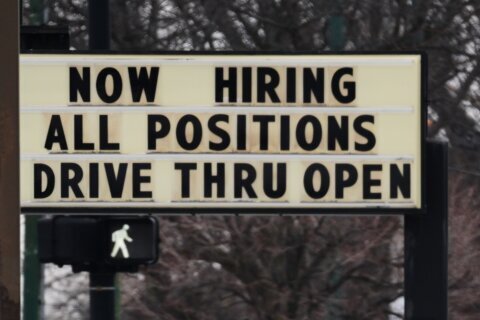
The temporary staffing industry has been hit hard by the COVID-19 pandemic. Temporary work in the second quarter was down 33.6% from the same quarter a year ago, a record annual decline, according to the American Staffing Association, in Alexandria, Virginia.
“What happens during any period of economic contraction, as a first-tier strategy, (is that) organizations tend to contract their flexible workforce first,” Richard Wahlquist, president and CEO of the American Staffing Association, told WTOP.
“As the COVID crisis shut down America, we saw a disparate impact on the number of temporary workers that were employed in the United States. Certainly, that was also true in the D.C. area,” he said.
Temporary and contract staffing sales totaled $25.9 billion in the second quarter, down 24.1% from the same quarter last year, and a nearly nine-year low.
There is an exception to the decline in such work in the D.C. area: Government contract work has remained resilient, largely because of the nature of that work.
Most temporary government contract jobs are white-collar and professional business sector jobs, Wahlquist said. “And government agencies have been able to institute remote work protocols for the majority of those workers. Because they weren’t actually physically working on job sites, that business has held up very, very well during the last six months.”
And the shortages of talent in the IT space in general continue to exist throughout the region.
With increasing signs of an improving economy, staffing companies expect their third-quarter revenue to improve. But they may be facing their own problems in getting temp workers back.
“We hear reports from our members that they are having a very difficult time attracting people back to the workforce,” Wahlquist said. “We think it is explained in part by the fact that people are just concerned for their safety. And, there was also all that government stimulus money that was infused into the economy creating, in some cases, disincentives to return to work.”
The temporary staffing industry accounts for about 2% of total U.S. employment. U.S. staffing companies employed an average of 2.1 million temporary and contract workers per week in the second quarter, the lowest since the Great Recession.








